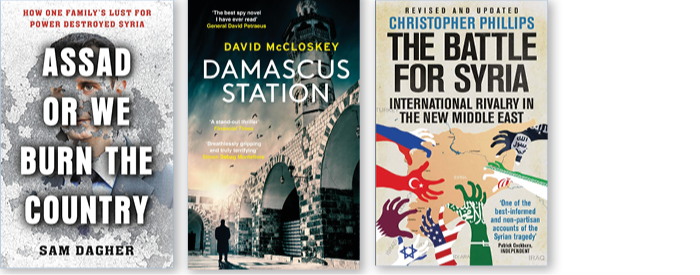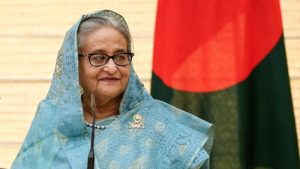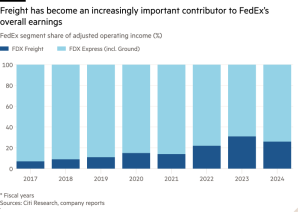What to read on Syria

Unlock the Editor’s Digest for free
Roula Khalaf, Editor of the FT, selects her favourite stories in this weekly newsletter.
Assad or We Burn the Country: How One Family’s Lust for Power Destroyed Syria by Sam Dagher (Little Brown)
Vivid account by war correspondent Dagher that describes both the devastation of the Syrian conflict and the west’s reluctance to stop it. In his review in the FT, John Sawers, former chief of MI6 and a Syria expert, described it as a “gruelling” account of a “textbook case of a regime using ruthless brutality to maintain itself in power”.
The Syrian Jihad: The Evolution of an Insurgency by Charles R Lister (Yale/Hurst)
Abu Mohammad al-Jolani and Hayat Tahrir al-Sham (HTS) have played a crucial role in toppling the Assad regime. This book delves into the origins of the Sunni insurgents who are currently remaking Syria, HTS’s previous ties to Isis and al-Qaeda, and the dramatic divorce that sparked a bloody intra-jihadi conflict in the midst of the country’s civil war.
No Turning Back: Life, Loss, and Hope in Wartime Syria by Rania Abouzeid (Oneworld)
An account of the human cost of the Syrian conflict as told through the stories of individuals. FT columnist Gideon Rachman described it as an “extraordinary” book that had the “gripping and tragic qualities of a first-rate novel”.
Syrian Gulag: Inside Assad’s Prison System by Jaber Baker and Ugur Ümit Üngör (Bloomsbury)
A deeply researched book piecing together the archipelago of horrifying prisons meticulously assembled by Syria’s secret police and intelligence apparatus under the Assad dynasty. A grim but necessary read, it unpacks the creation of one of the world’s most notorious prison systems and the practices adopted by the regime to incarcerate, torture and kill tens of thousands of Syrians opposed to the rule of Bashar al-Assad and his father over the past five decades.
Damascus Station by David McCloskey (Swift/WW Norton)
A chilling, well-executed spy thriller from a former CIA officer explores the inner workings of the Assad regime and its lethal Mukhābarāt secret police which, in the words of the FT’s critic, are imagined in “extraordinary detail”. It tells the story of a CIA officer sent to recruit a top Syrian official and all the ensuing terrors, trade-offs — and emotional entanglements. Packed with insider knowledge, the story has a very authentic feel to it.

The Battle for Syria: International Rivalry in the New Middle East by Christopher Phillips (Yale)
Attempting to understand the complexities of Middle East politics can seem like a dizzying task. Syria’s long war is no exception, involving myriad international and regional state and non-state actors competing for influence. Phillips’s book is essential to understanding the internationalisation of the Syrian civil war and how foreign meddling and proxy wars exacerbated the country’s violent 13-year conflagration.
The Kurds of Syria: Political Parties and Identity in the Middle East by Harriet Allsopp (IB Tauris)
A history of Syria’s Kurds, who represent a key player in Syria’s war, branded as illegal immigrants and alien infiltrators by the Assad regime. This detailed book looks at the ethnic group’s fight against Damascus’s efforts to crush Kurdish nationalism and the roots of the eventual confrontation between Recep Tayyip Erdoğan’s Turkey and the Kurds on the battlefields of Syria.
Killing Mr Lebanon: The Assassination of Rafik Hariri and Its Impact on the Middle East by Nicholas Blanford (IB Tauris)
From the Lebanese civil war to the assassination of Rafik Hariri to the dramatic end of Syria’s military presence in Lebanon, this is a suspenseful and prescient page-turner on Bashar al-Assad bungling the regime’s de facto rule over its neighbour. Blanford’s account of the killing of Lebanon’s prime minister is essential to understanding the corruption and terror at the heart of Syria’s government and how both were wielded to intimidate enemies abroad and spread its influence in the Middle East.

The Russian Military Intervention in Syria by Ohannes Geukjian (McGill-Queen’s University Press)
In one of a number of books focused on Russian involvement in the Syrian conflict, Geukjian analyses how a status-seeking strategy saw Moscow become so entangled in the region. Could be read alongside Anna Borshchevskaya’s Putin’s War in Syria: Russian Foreign Policy and the Price of America’s Absence (IB Tauris), which places the current conflict within the longer history of Russian involvement in the region.
The Loom of Time: Between Empire and Anarchy, from the Mediterranean to China by Robert D Kaplan (Random House)
Instability in the Middle East is often blamed on too much outside interference. Kaplan, an American geopolitical analyst, argues the opposite in his provocative study of the broader forces reshaping the Middle East. “There are no longer any world empires to keep order,” he writes, adding that, “In sum, the Middle East after a hundred years has still not found an adequate solution to the collapse of the Ottoman Empire.”
A Peace to End All Peace: The Fall of the Ottoman Empire and the Creation of the Modern Middle East by David Fromkin (Henry Holt & Co)
Landmark account of the events leading up to the dissolution of the Ottoman Empire and the resulting dramatic changes that swept across the Middle East. Richard Holbrooke, the late senior US diplomat, said: “Without knowledge of its back-story, no policymaker will get the region right . . . Of the vast array of books on the region, none is more relevant than Fromkin’s sweeping epic.”
Join our online book group on Facebook at FT Books Café and subscribe to our podcast Life & Art wherever you listen
#read #Syria




